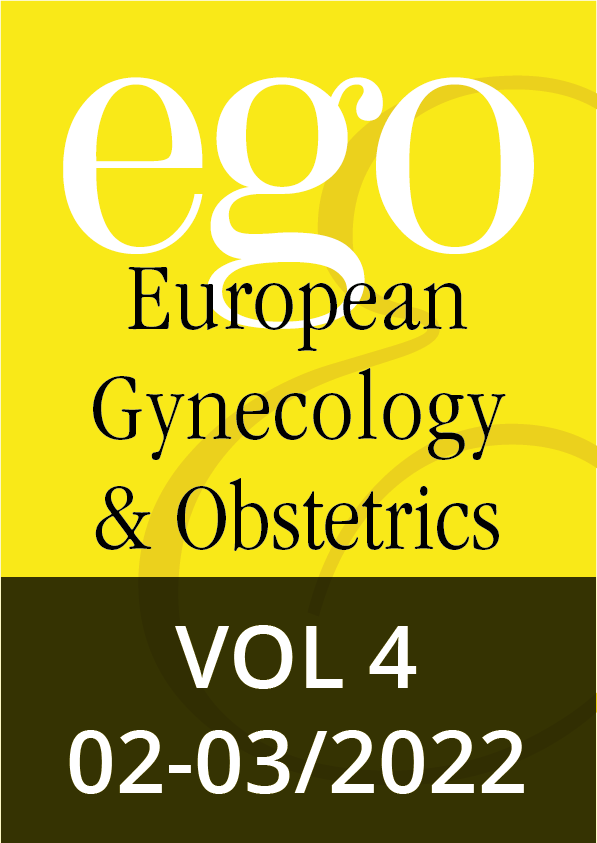Short reviews, 066-070 | DOI: 10.53260/EGO.22402031
Reviews, 071-075 | DOI: 10.53260/EGO.22402032
Case reports, 076-078 | DOI: 10.53260/EGO.22402033
Case reports, 079-081 | DOI: 10.53260/EGO.22402034
Case reports, 082-085 | DOI: 10.53260/EGO.22402035
Original articles, 086-094 | DOI: 10.53260/EGO.22402036
Original articles, 095-0102 | DOI: 10.53260/EGO.22402037
Original articles, 103-105 | DOI: 10.53260/EGO.22402038
Original articles, 106-111 | DOI: 10.53260/EGO.22402039
Original articles, 112-116 | DOI: 10.53260/EGO.224020310
Routine NIPT: the rise in fetal sex discordance and earlier diagnosis of disorders of sex development
Abstract
In Belgium, routine non-invasive diagnostic testing (NIPT) has led to a rise in discordant results between the genetic sex, obtained via NIPT, and the phenotypic sex assessed by ultrasound. This has improved prenatal diagnosis of disorders of sex development (DSD). Here we report on the nine cases of fetal sex discordance encountered in our fetal medicine unit at the CHU de Liège since we began doing NIPT routinely, and share some established protocols to facilitate the management of such discordances. Of the nine discordant cases included in this report, six turned out to be DSD: two cases of 46,XX and four cases of 46,XY DSD. DSDs are still rare, complex conditions and an early diagnosis is a great advantage in clinical practice. Discovering that a fetus has a DSD is a difficult clinical situation, both medically and psychosocially, and being able to perform early prenatal diagnosis and to pre-arrange the various tests needed at birth is invaluable.This highlights the importance of developing and following well-codified multidisciplinary diagnostic protocols in order to improve overall care for both fetus and parents.
Keywords: 46, disorder of sex development, management protocol, prenatal diagnosis, Routine NIPT, XX DSD, XY DSD
Citation: Doupagne A.,Laterre M.,Capelle X.,Grandfils S.,Chantraine F.,Fudvoye J.,et al. Routine NIPT: the rise in fetal sex discordance and earlier diagnosis of disorders of sex development, EGO European Gynecology and Obstetrics (2023); 2022/02-03:095-0102 doi: 10.53260/EGO.22402037
Published: May 22, 2023
ISSUE 2022/02-03

Short reviews, 066-070 | DOI: 10.53260/EGO.22402031
Reviews, 071-075 | DOI: 10.53260/EGO.22402032
Case reports, 076-078 | DOI: 10.53260/EGO.22402033
Case reports, 079-081 | DOI: 10.53260/EGO.22402034
Case reports, 082-085 | DOI: 10.53260/EGO.22402035
Original articles, 086-094 | DOI: 10.53260/EGO.22402036
Original articles, 095-0102 | DOI: 10.53260/EGO.22402037
Original articles, 103-105 | DOI: 10.53260/EGO.22402038
Original articles, 106-111 | DOI: 10.53260/EGO.22402039
Original articles, 112-116 | DOI: 10.53260/EGO.224020310
